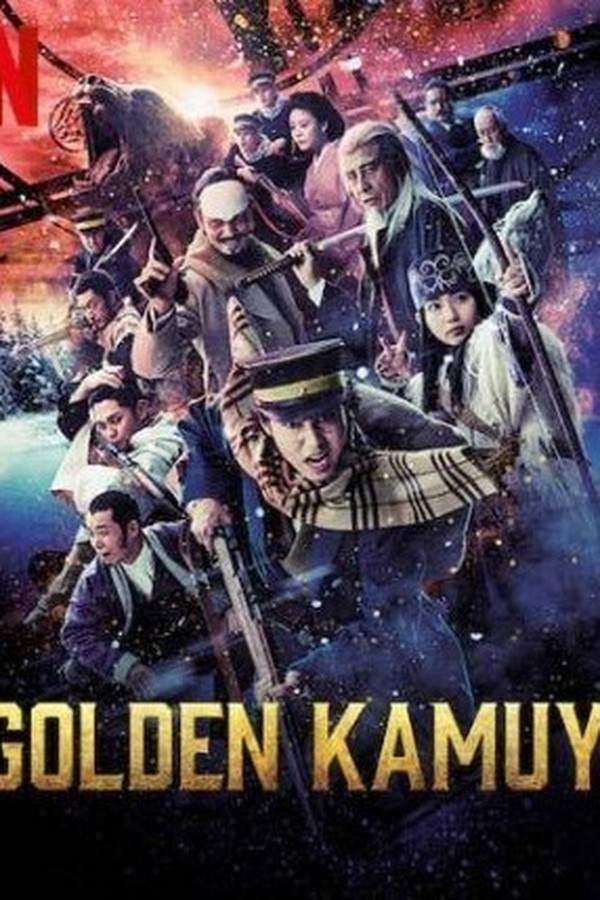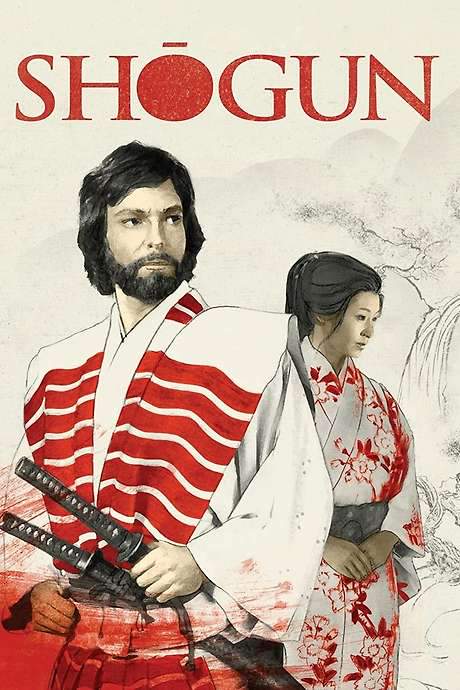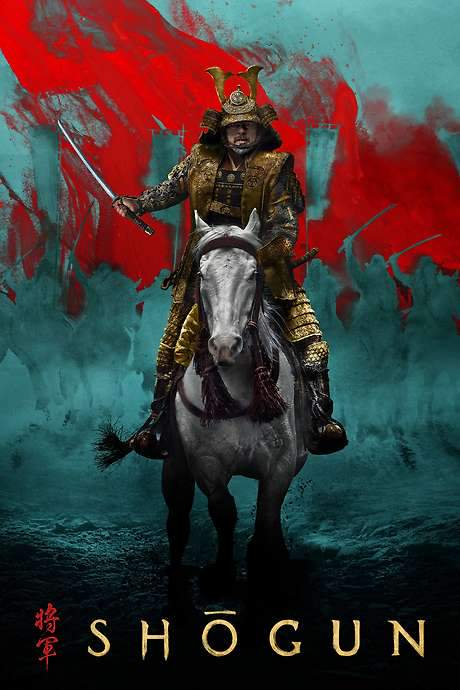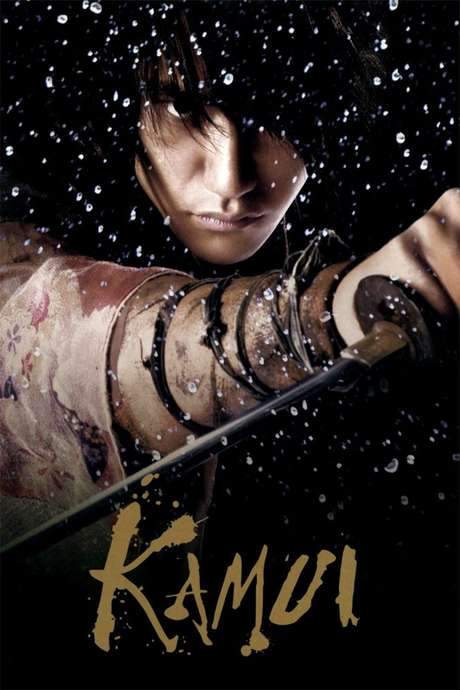Golden Kamuy 2024

Set in the harsh wilderness of Hokkaido following the Russo-Japanese War, a former soldier named Saichi Sugimoto discovers a cryptic map detailing the location of a massive gold stash hidden by an Ainu tribe. Known as "immortal" for his resilience in battle, Sugimoto sets out on a perilous journey to find the gold, encountering dangerous rivals and forging an uneasy alliance with a skilled Ainu huntress. He must navigate treacherous terrain, confront hostile forces, and unravel the secrets of a forgotten past to claim the treasure.
Does Golden Kamuy have end credit scenes?
No!
Golden Kamuy does not have end credit scenes. You can leave when the credits roll.
Meet the Full Cast and Actors of Golden Kamuy
Explore the complete cast of Golden Kamuy, including both lead and supporting actors. Learn who plays each character, discover their past roles and achievements, and find out what makes this ensemble cast stand out in the world of film and television.

Debo Akibe
Asirpa's great uncle

Hisako Ôkata
Huci

Kento Yamazaki
Saichi Sugimoto

Gordon Maeda
Hyakunosuke Ogata

Shuntarô Yanagi
Yôhei, Kôhei Nikaido

Katsuya
Tatsûma Ushiyama

Hiroshi Tachi
Toshizô Hijikata

Anna Yamada
Asirpa

Yûma Yamoto
Yoshitake Shiraishi

Ryôhei Ohtani
Genjirô Tanigaki

Katsumi Kiba
Shinpachi Nagakura

Makita Sports
Takechiyo Gotô

Asuka Kudô
Hajime Tsukishima

Hiroshi Tamaki
Tokushirô Tsurumi

Ken Aoki
Naoaki Noma

Keisuke Horibe
Kouji Wada

Arata Iura
Wilk

Yuki Izumisawa
Toraji Kenmochi

Kenta Matsushima

Alexei Pete
External Links and Streaming Options
Discover where to watch Golden Kamuy online, including streaming platforms, rental options, and official sources. Compare reviews, ratings, and in-depth movie information across sites like IMDb, TMDb, Wikipedia or Rotten Tomatoes.
Ratings and Reviews for Golden Kamuy
See how Golden Kamuy is rated across major platforms like IMDb, Metacritic, and TMDb. Compare audience scores and critic reviews to understand where Golden Kamuy stands among top-rated movies in its genre.

The Movie Echo Score
Golden Kamuy receives a mixed reception that reflects both its visual strengths and narrative shortcomings. Critics highlight the film's energetic action and effective world‑building, while many viewers point to rushed pacing, uneven direction, and an unresolved conclusion. The adaptation succeeds in translating some of the source material's atmosphere, yet the condensation of plot elements and occasional miscasting dilute its impact. Consequently, the film offers moderate enjoyment with limited incentive for repeated viewings.
The Movie Echo Score Breakdown for Golden Kamuy

Art & Craft
In terms of art and craft, the film showcases striking natural scenery and competent CGI, but direction and production design draw criticism. Reviewers note impressive landscape photography and occasional visual flair, yet many describe the costumes and overall style as simplistic or reminiscent of low‑budget cosplay. Editing choices, such as the placement of flashbacks, are seen as suboptimal. The combination of visual highlights and artistic inconsistencies results in a middling assessment.

Character & Emotion
When evaluating character and emotion, performances vary widely across the cast. Some actors receive commendation for nuanced delivery and chemistry, particularly the portrayal of Asirpa, while others are regarded as miscast or lacking depth. Critics appreciate the development of leading figures, yet audience feedback frequently cites uneven acting and casting decisions that weaken emotional resonance. This blend of strong and weak portrayals balances out to a moderately positive character rating.

Story & Flow
Story and flow receive a mixed appraisal due to the film's condensation of source material. Observers acknowledge that the plot is largely coherent and introduces the central premise effectively, but many highlight rushed pacing, excessive flashbacks, and an unresolved narrative arc. The adaptation’s attempt to compress multiple episodes into a two‑hour runtime leaves several plot threads dangling, reducing overall engagement. These structural issues pull the story score toward the lower end of the spectrum.

Sensory Experience
Sensory experience is marked by competent sound and visual elements without remarkable distinction. Viewers describe the soundtrack and sound design as functional, while the visual style benefits from vivid cinematography and acceptable CGI quality. Although some critiques mention a lack of stylistic boldness, the film generally maintains a steady audiovisual baseline that supports the action sequences. This steady but unexceptional sensory delivery leads to a modestly positive rating.

Rewatch Factor
Rewatch factor is influenced by both anticipation for future installments and the film's incomplete nature. Fans express enthusiasm for a sequel and find certain scenes enjoyable enough to revisit, whereas others see the movie as an extended teaser lacking narrative closure, limiting its replay value. The balance of curiosity-driven interest against perceived incompleteness yields an average rewatch potential.


100%
TOMATOMETER

81%
User Score

/10
IMDb Rating

69
%
User Score

3.4
From 34 fan ratings
Take the Ultimate Golden Kamuy Movie Quiz
Challenge your knowledge of Golden Kamuy with this fun and interactive movie quiz. Test yourself on key plot points, iconic characters, hidden details, and memorable moments to see how well you really know the film.
Golden Kamuy Quiz: Test your knowledge on the explosive tale of Saichi Sugimoto and his quest for gold amid the chaos of the Russo-Japanese War.
What motivates Saichi Sugimoto after the Russo-Japanese War?
The search for hidden gold in Hokkaido
To become a soldier again
To join the Ainu tribe
To escape to Russia
Show hint
Full Plot Summary and Ending Explained for Golden Kamuy
Read the complete plot summary of Golden Kamuy, including all major events, twists, and the full ending explained in detail. Explore key characters, themes, hidden meanings, and everything you need to understand the story from beginning to end.
Immortal soldier Saichi Sugimoto (Kento Yamazaki) fought valiantly in the Russo-Japanese War of 1904 at 203 Meter Hill in China, where 130,000 Japanese troops were sent to seize Port Arthur, a critical Russian naval stronghold. This brutal battle resulted in the loss of 60,000 Japanese and 40,000 Russian lives. Among Saichi’s comrades was Toraji (Yuki Izumisawa), who fought alongside him. In a moment of harrowing courage, Saichi took a direct hit but miraculously survived, displaying incredible resilience as he stormed through Russian trenches, defeating several enemies despite enduring severe wounds. Tragically, he was unable to save Toraji from falling in battle.
Two years later, Sugimoto finds himself in dire straits, plagued by memories of the war. Having killed his commanding officer, he receives no pension, leaving him in desperate search of a better life. This quest leads him to a rumor of hidden treasure in Hokkaido, originating from tales shared by a drunken vagabond. This man reveals that the Ainu tribe had been secretly hoarding gold in anticipation of a revolt against the Japanese forces to safeguard their ancestral lands. However, a madman known as Noppera-Bo slaughtered all the revolutionaries in one fateful night and absconded with the treasure which was valued at a staggering eight billion yen, concealing it somewhere within Hokkaido.
Eventually captured by the Imperial Army, Noppera-Bo endured relentless torture in Abashiri Prison, yet remained silent about the gold’s whereabouts. In a desperate attempt to communicate with his friends, he tattooed the coordinates on select inmates, orchestrating their escape with the promise of sharing the treasure. This story sparked a frenzy among those who sought the notorious tattooed convicts, each motivated by dreams of wealth.
The vagabond attempts to harm Sugimoto but soon recognizes his immortal nature and flees, only to meet a grisly fate at the jaws of a bear. Sugimoto discovers that this man was actually Takechiyo Goto (Makita Sports), a tattooed convict. In a twist of fate, he is also attacked by the bear but is saved by an Ainu named Asirpa (Anna Yamada). Upon sharing Goto’s tale, Asirpa’s disbelief turns to determination, as her own kin was slain by Noppera-Bo. She realizes that the tattoos on Goto’s skin require an inhumane act of being skinned to reveal their secrets, indicating that Noppera-Bo had no intention of sharing his fortune.
As they align their goals, another bear attack brings help in the form of a mysterious white wolf named Retar. Sugimoto concocts a plan to discover the treasure and avenge Asirpa’s father, making her vow that he will not take a life during their journey. Their quest leads them to Otaru, where they inquire about the tattoos and unwittingly attract the attention of two convicts. Following their trail, they capture them in the mountains, only for the situation to spiral as Hyakunosuke Ogata (Gordon Maeda), part of the army’s 7th Division, arrives and turns the scenario deadly.
As a result of the ensuing chaos, Ogata kills one of the convicts, intensifying Sugimoto’s moral struggle as Asirpa captures their tattoos through sketches instead of bloodshed. In an ironic twist of fate, Yoshitake Shiraishi (Yûma Yamoto), another convict, reveals the formidable Toshizō Hijikata (Hiroshi Tachi), an ex-samurai and vice commander of the Shinsengumi, serves as the leader of the tattooed prisoners, orchestrating their jailbreak.
Meanwhile, Tokushirō Tsurumi (Hiroshi Tamaki), commander of the 7th Division, seeks to unravel Sugimoto’s connection to the convicts. He harbors resentment against the Japanese government for its mishandling of the war, intending to use the sought-after gold to fund his own tyrannical regime in Hokkaido—a plan further fueled by his deteriorating mental state evidenced by bizarre conduct and violent outbursts.
Amidst these rising tensions, Asirpa employs unorthodox measures, using Sugimoto’s socks to track him down, though fate intervenes as they lead her instead to Yoshitake. Urged into action, Yoshitake agrees to aid her in rescuing Sugimoto as he makes an audacious escape from Tsurumi’s men, unveiling a deeper layer to his existence and mission, rooted in a poignant past where friendship, loyalty, and loss intertwine.
Sugimoto recounts the tragic tale of his childhood friends, Toraji and Ume (Mitsuki Takahata), both married by the time he returned home. Toraji’s selfless sacrifice to save him during the war illuminates Sugimoto’s journey as he yearns to honor his friend’s final wish—to find the gold and heal Ume’s blindness.
As their saga unfolds, Hijikata’s plans for an independent Republic of Ezo surface, calling for weapons and mercenaries to restore a bygone era in stark opposition to modernization. All the while, Noppera-Bo remains a haunting presence, having left a lasting scar on Asirpa’s life, tightening the web of vengeance that entwines our protagonists as they navigate the treacherous path ahead.
Uncover the Details: Timeline, Characters, Themes, and Beyond!

Coming soon on iOS and Android
The Plot Explained Mobile App
From blockbusters to hidden gems — dive into movie stories anytime, anywhere. Save your favorites, discover plots faster, and never miss a twist again.
Sign up to be the first to know when we launch. Your email stays private — always.
Watch Trailers, Clips & Behind-the-Scenes for Golden Kamuy
Watch official trailers, exclusive clips, cast interviews, and behind-the-scenes footage from Golden Kamuy. Dive deeper into the making of the film, its standout moments, and key production insights.
Golden Kamuy Themes and Keywords
Discover the central themes, ideas, and keywords that define the movie’s story, tone, and message. Analyze the film’s deeper meanings, genre influences, and recurring concepts.
Golden Kamuy Other Names and Titles
Explore the various alternative titles, translations, and other names used for Golden Kamuy across different regions and languages. Understand how the film is marketed and recognized worldwide.
Similar Movies To Golden Kamuy You Should Know About
Browse a curated list of movies similar in genre, tone, characters, or story structure. Discover new titles like the one you're watching, perfect for fans of related plots, vibes, or cinematic styles.
Quick Links: Summary, Cast, Ratings, More

What's After the Movie?
Not sure whether to stay after the credits? Find out!
Explore Our Movie Platform
New Movie Releases (2025)
Famous Movie Actors
Top Film Production Studios
Movie Plot Summaries & Endings
Major Movie Awards & Winners
Best Concert Films & Music Documentaries
Movie Collections and Curated Lists
© 2025 What's After the Movie. All rights reserved.































